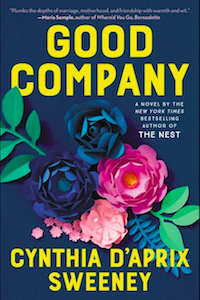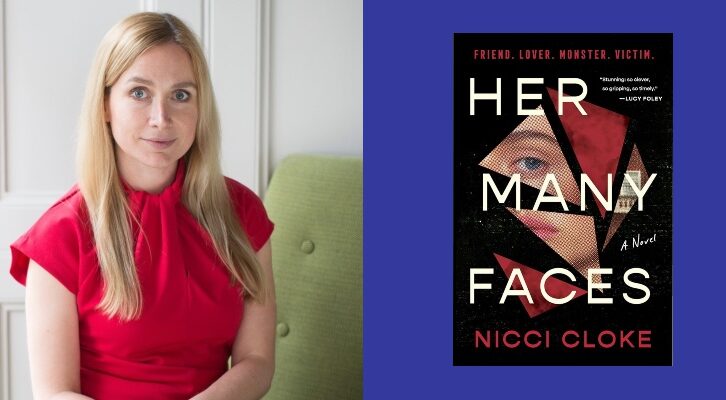Cynthia D’Aprix Sweeney on First Drafts and Battling Writer’s Block
“Write the first draft for yourself.”
Cynthia D’Aprix Sweeney’s Good Company is out today so we asked her a few questions about her approach to writing.
*
What time of day do you write?
I am a morning person and if lunch comes along and I haven’t gotten anything done, chances are I won’t. I try to sit down with that first cup of coffee and get right into the story. It’s tempting for me to deal with email first because I live on the West Coast and often wake up to emails from an earlier time zone, but the days when I read a little and then write and then deal with the outside world are always the most productive ones. I’m not always that disciplined (I’m looking at you, New York Times Spelling Bee) but I try.
How do you tackle writer’s block?
I worked as a copywriter for many years and I’m sure that’s why I have a hard time understanding the concept of writer’s block. Writing is a job and the only cure for resistance is to push through and get something done—even if you’re not happy with the writing, get something on the page. For me, the rules don’t change when the work is more creative. I certainly understand self-doubt—and fear! I get fear. The process of writing—for me and for almost every writer I know—is some combination of fast, slow and excruciating.
Some days everything seems to be flowing. Some days I just sit and stare at the screen and try to figure out what happens next. Most days I don’t get as much done as I’d like. But all those days count! Thinking counts. Staring into space counts. As long as you’re engaged in the story and in the world of the book, you’re working on the book, even if the daily word count is zero. On days when I feel frustrated or uninspired, I read. I look for a book where I feel the author has made all the right moves. I immerse myself in the language and try to notice structure and see how the gears work behind the scenes. Reading almost always gets me unstuck.
What’s the best writing advice you’ve ever received?
Read aspirationally (which spellcheck is trying to change to inspirationally and that’s true, too). Write the first draft for yourself. I have a friend who helpfully reminds me that in the first draft I’m telling myself the story. Apply pressure with plot, have your characters make a choice, and you’ll see who they are. Revise, revise, revise.
What do you always want to talk about in interviews but never get to?
I love to talk about endings but for obvious reasons, it’s hard to do that unless you’re sure everyone has read the book. I always try to leave a little room for interpretation at the end of my books. I want the reader to wonder what happens to the characters after the last page. As a reader, I most love an ending when I have enough information to be satisfied but I don’t want every loose strand tied up into a pretty bow. I also wish people asked more about the secondary characters in a book because I love some of them best. The pressure’s off a little with the supporting cast, so they’re often the most fun to write and sometimes the easiest.
Is there a book you wish you had written?
I can only write the books that spring from my consciousness, for better or worse! To write someone else’s book, you’d have to live someone else’s life. My life has been pretty good so I’ll keep it.
__________________________________

Good Company is available from Ecco, an imprint of HarperCollins Publishers. Copyright © 2021 by Cynthia D’Aprix Sweeney.




















